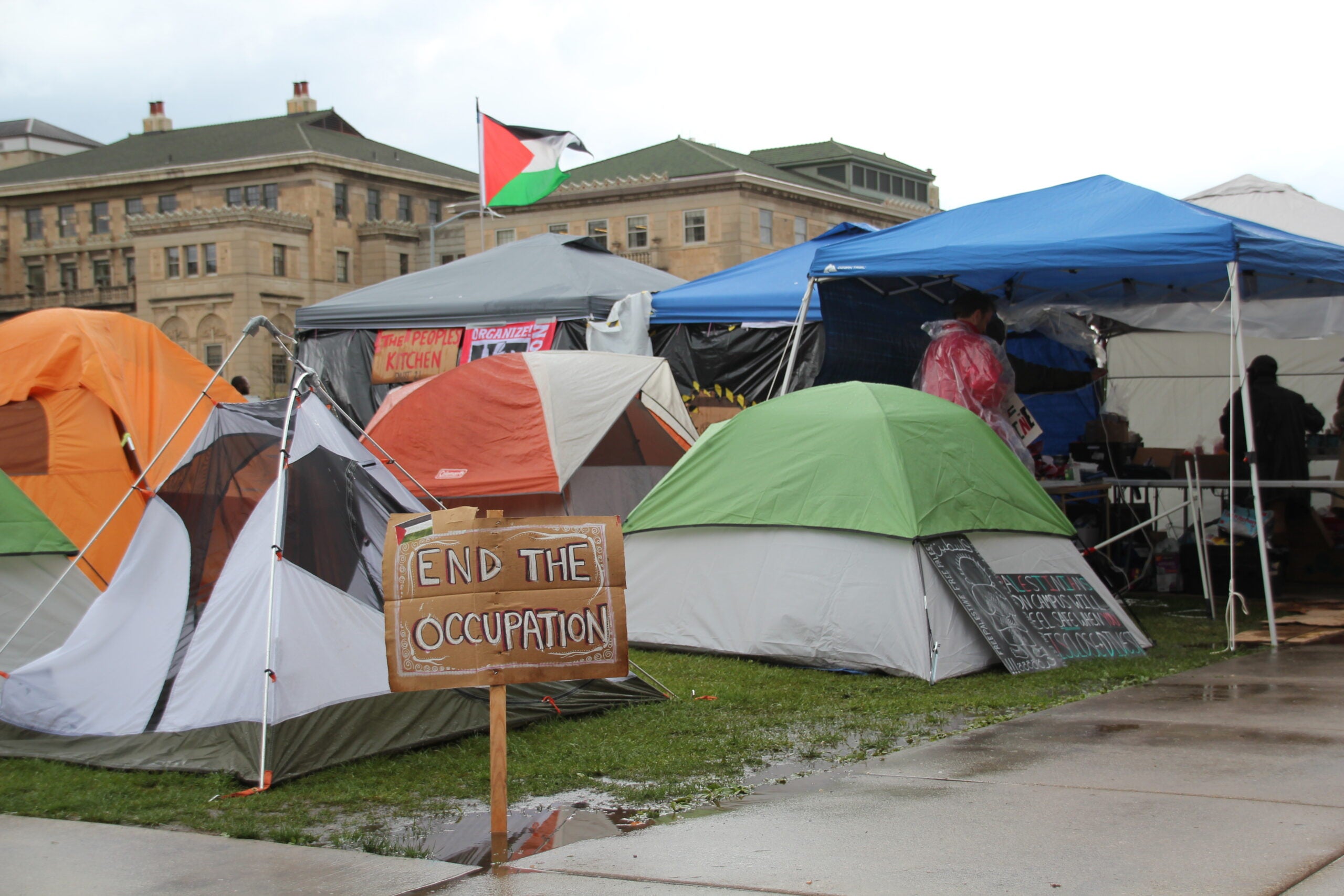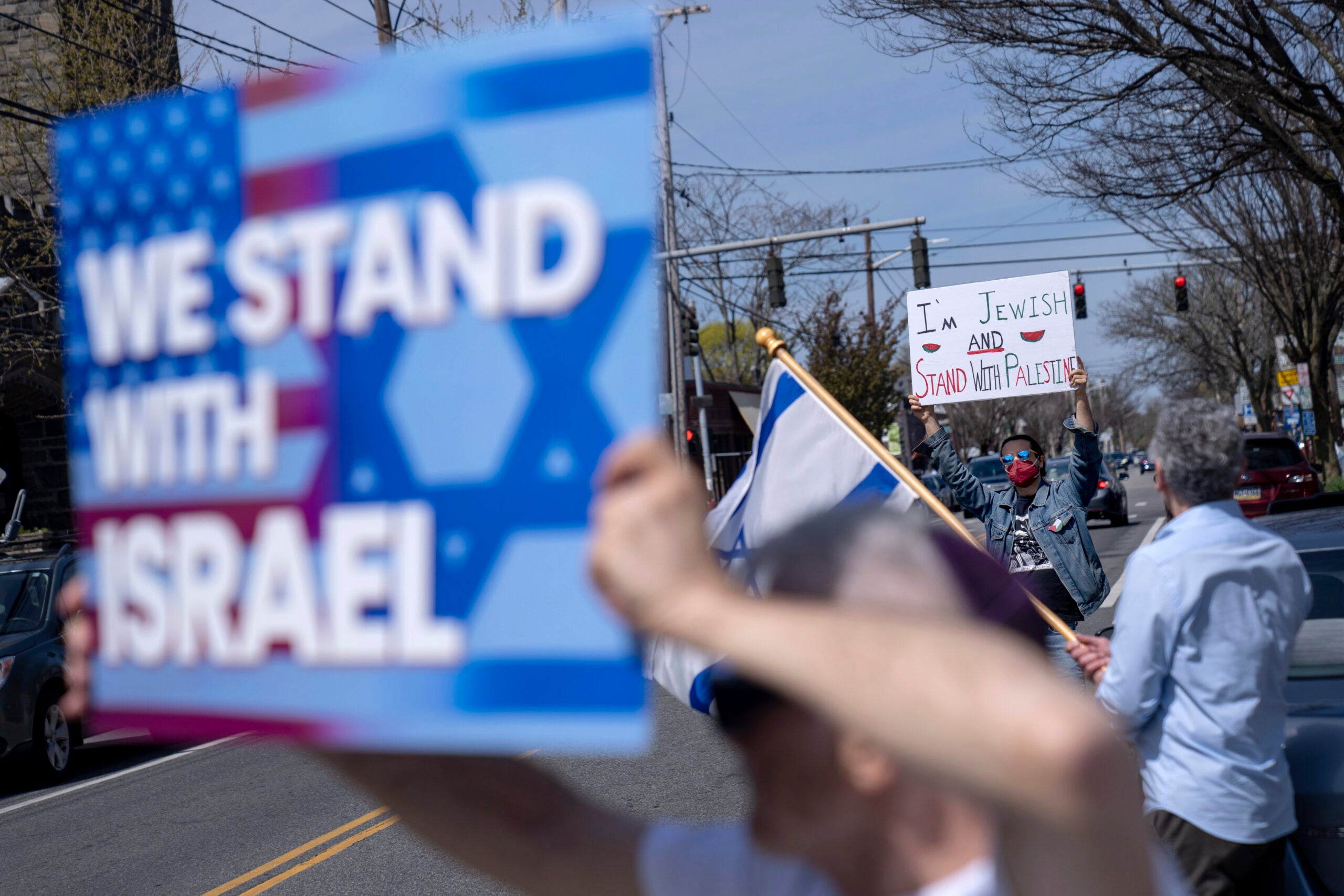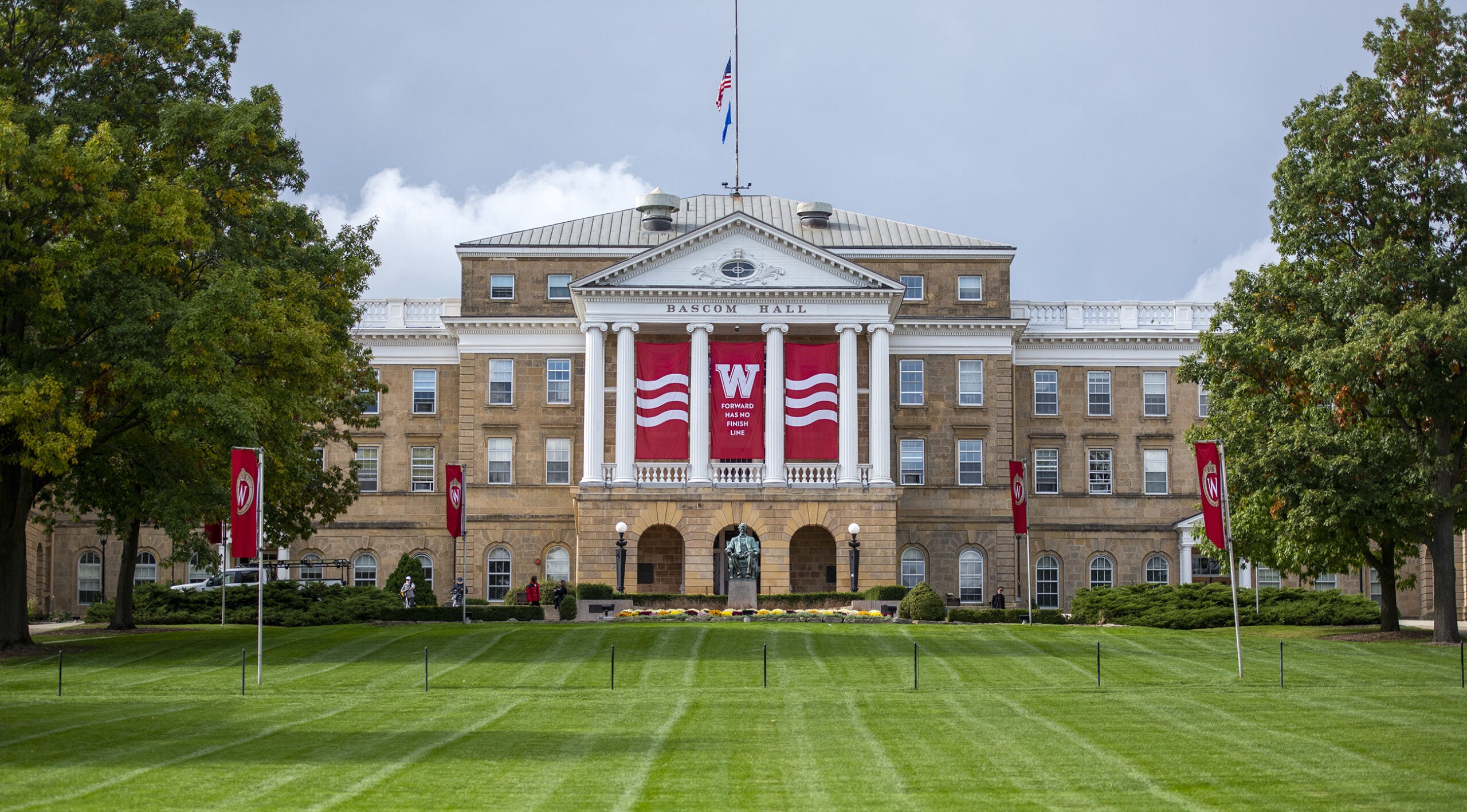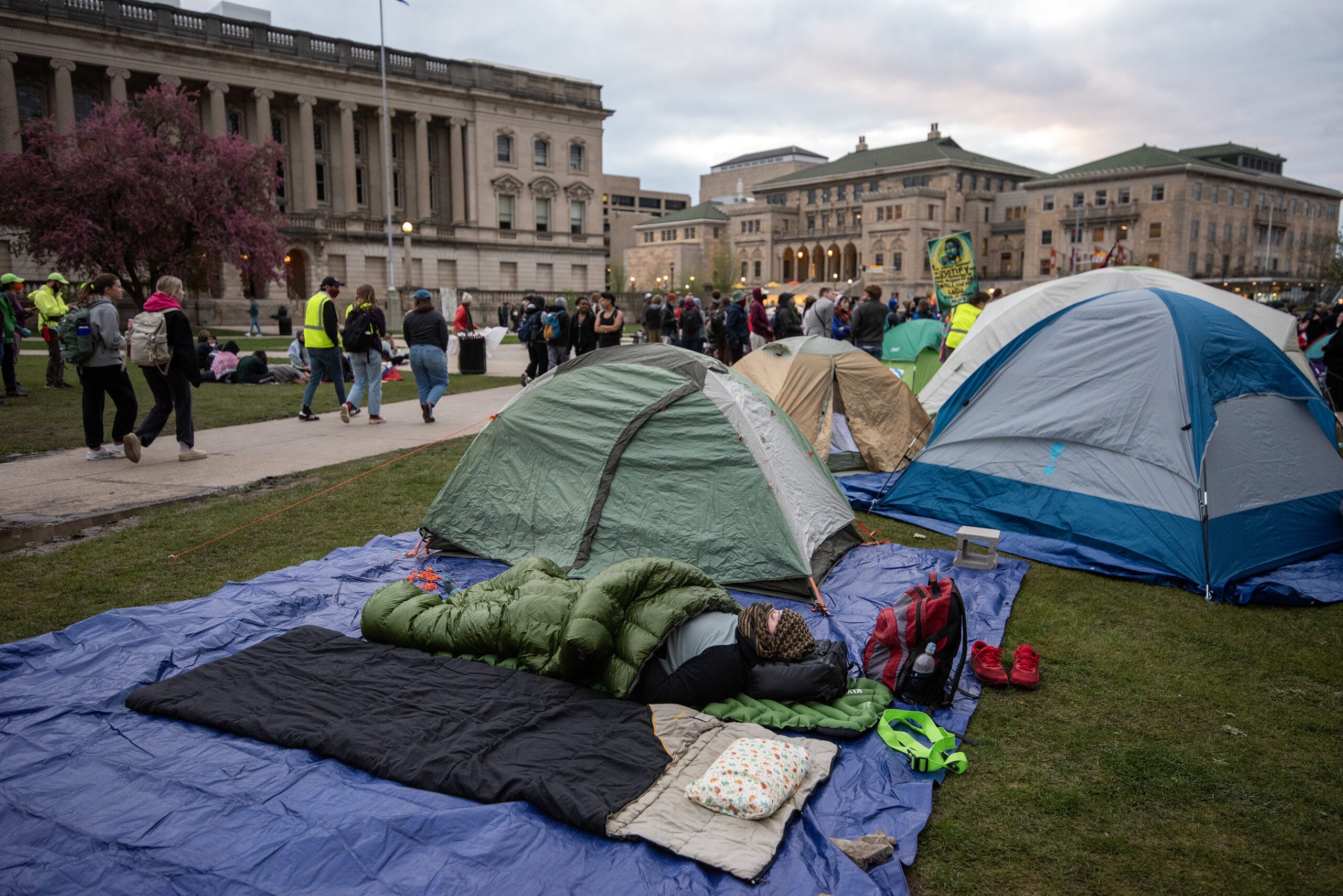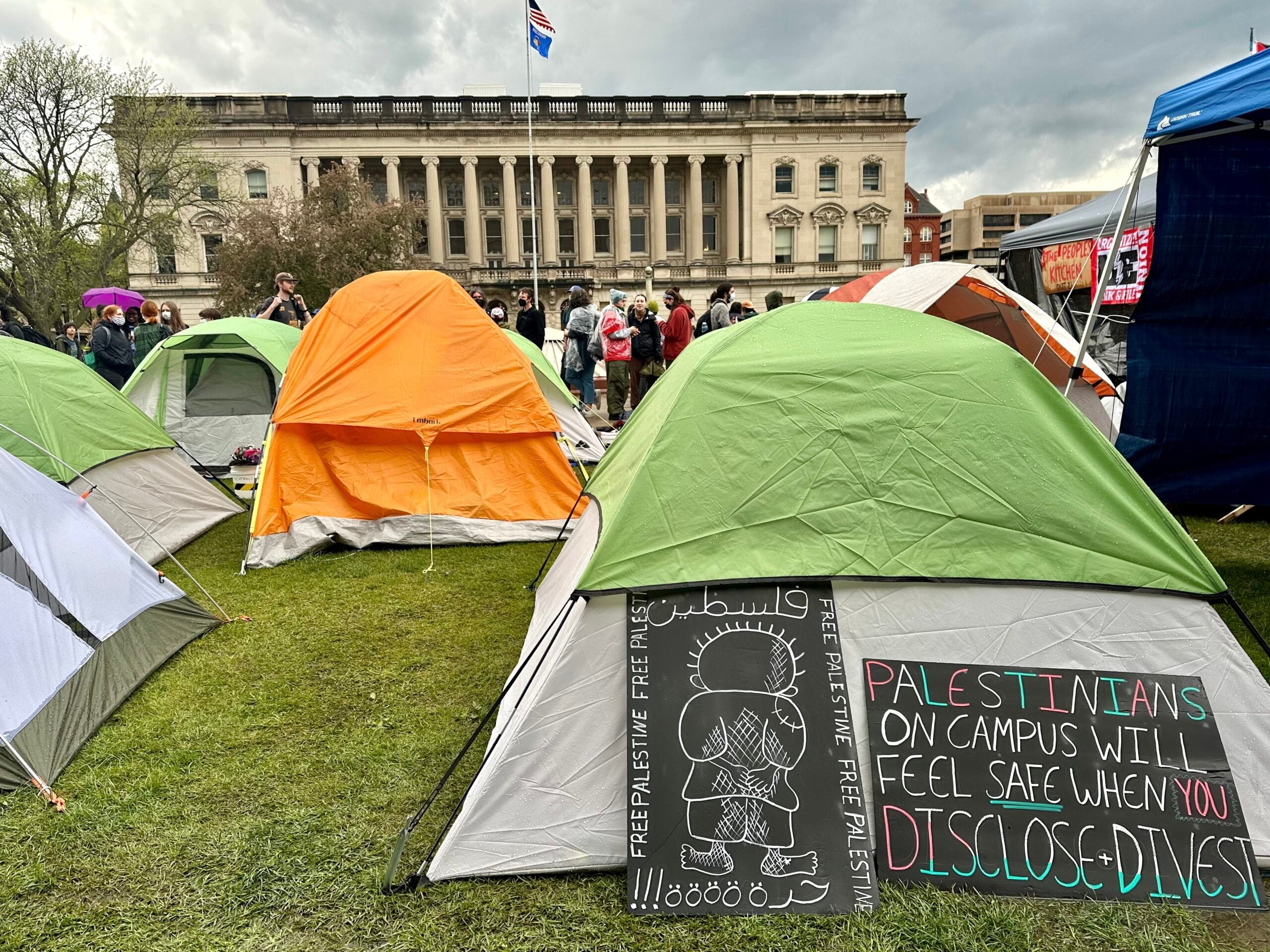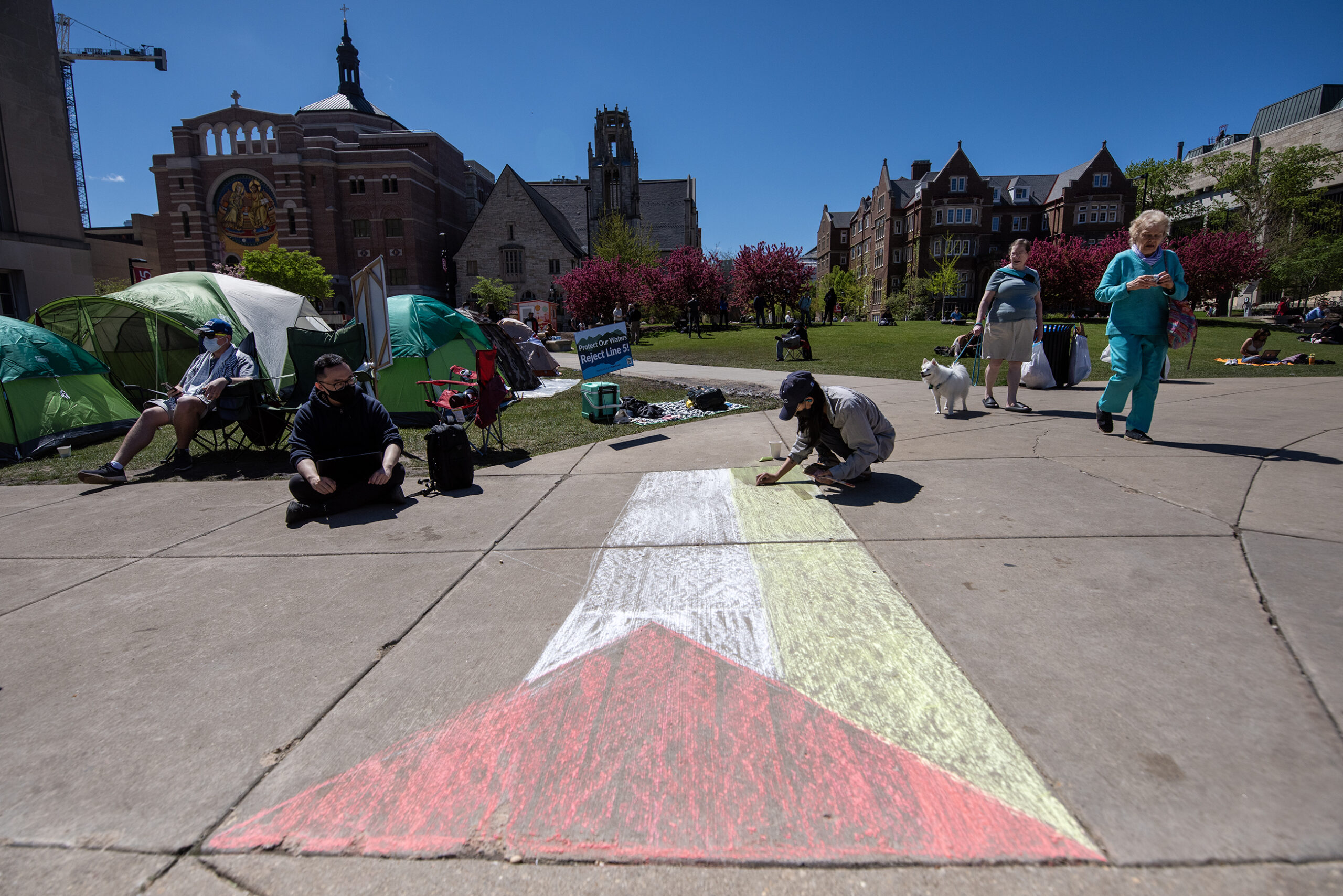A day after police arrested more than 30 pro-Palestinian protesters, university leaders met privately to talk with student organizers and agreed to let an encampment in the heart of the University of Wisconsin-Madison campus stand for at least another day.
A UW spokesperson confirmed to WPR that university leaders met with campus organizers Thursday morning and pledged to meet again within 24 hours. The spokesperson said they promised “no police action would take place before” that time.
The Thursday meeting was “hard, was honest, frank, and very productive,” said Samer Allatout, a professor who is one of the faculty liaisons to the student group.
News with a little more humanity
WPR’s “Wisconsin Today” newsletter keeps you connected to the state you love without feeling overwhelmed. No paywall. No agenda. No corporate filter.
“I would say, there was some sort of good faith talking in the room,” Allatout added.
He was among 34 people arrested Wednesday morning when police forcibly cleared out most of the tents that have stood on Library Mall since Monday. Hours after that police action, more than a dozen new tents were quickly set up in their place.
Under gray and sometimes rainy skies Thursday, the tents remained standing while participants held teach-ins and listened to slam poetry.
The protest at UW-Madison is one of dozens at college campuses nationwide, a response to Israel’s ongoing war in Gaza. Students are demanding their schools disclose investments and end those that involve Israel.
Some Wisconsin high school students also joined the college protests. About 20 students in Madison marched from the state Capitol to the university campus Thursday afternoon.
And about 75 students from Shorewood High School, north of Milwaukee, marched Thursday to the encampment at UW-Milwaukee, which has remained undisturbed by school leaders or police since it was established Monday. That march was organized by the school’s recently formed Muslim Student Union.
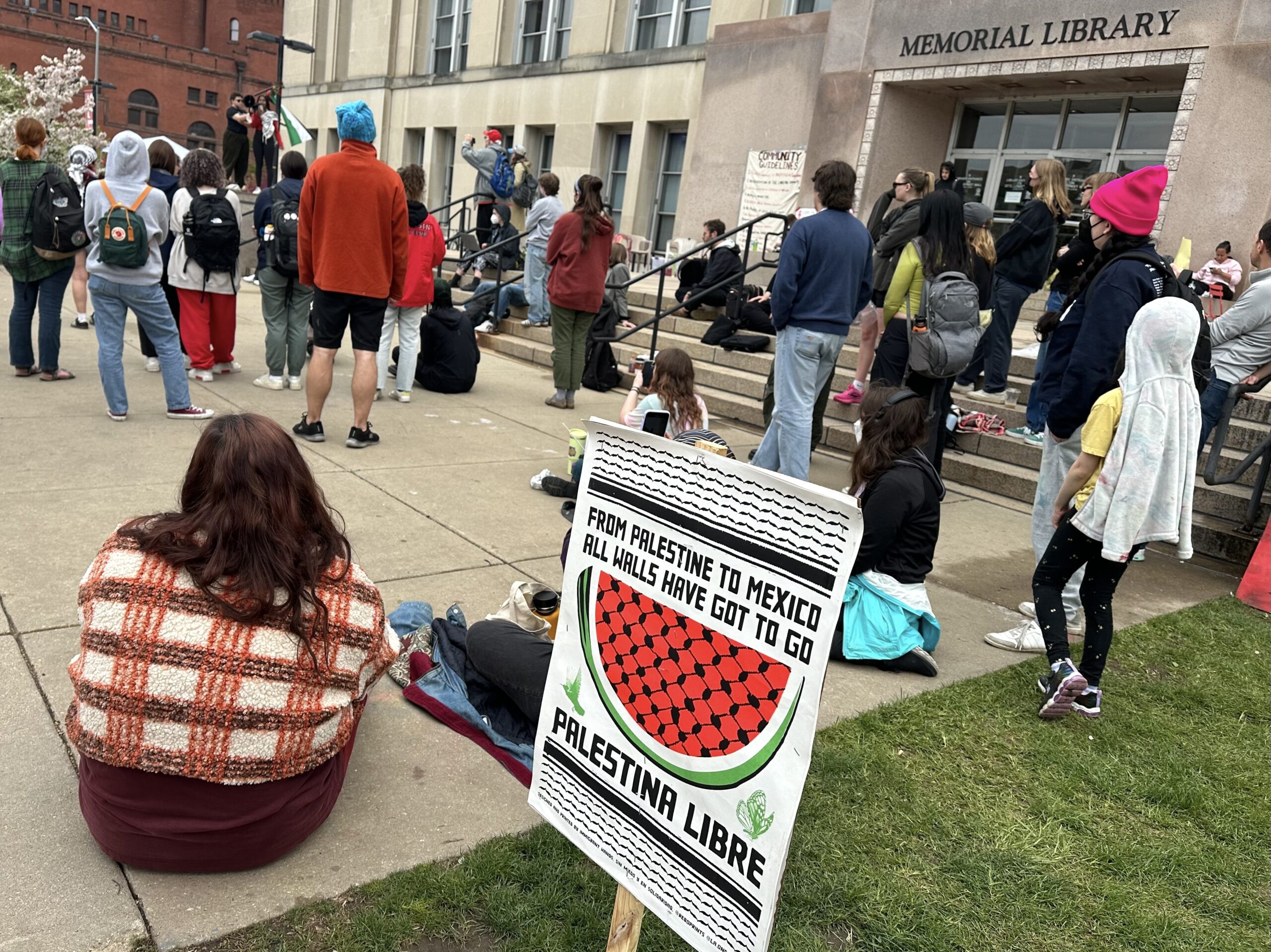
In the more than two weeks since the encampment movement began, administrations around the country have responded with a range of tactics. Some have orchestrated forceful crackdowns using local and state law enforcement. Others have engaged in dialogue with organizers.
That latter tactic has ended the encampments at Northwestern University and at Brown University in Rhode Island. Administrators at Northwestern agreed to establish an advisory committee on its investment activities that would include students, and support a small number of “at risk” Palestinian students and faculty. Leaders at Brown agreed to review a student divestment proposal.
Some Jewish and pro-Israel students have denounced the protests and their demands as antisemitic. A call for an end to the Jewish state, they say, is a call for violence against Jewish students. On Wednesday night, about 60 pro-Israel students organized a nearby counterprotest, according to reporting by the Daily Cardinal, a student newspaper.
The UW-Madison Hillel, a centralized Jewish organization, released a statement Wednesday night saying the encampment “has fostered heightened fear, insecurity, and harassment of Jewish students.”
The encampments have also found their way into the nation’s presidential politics, where a handful of states, including Wisconsin, are expected to tip the election.
During a campaign stop in Waukesha Wednesday, former President Donald Trump praised law enforcement crackdowns, including the actions by New York City police officers, who raided buildings that Columbia University students had occupied, arresting more than 100.
“To every college president, I say: remove the encampments, immediately vanquish the radicals and take back our campuses for all of the normal students who want a safe place from which to learn,” Trump said.
On Thursday morning, President Joe Biden delivered a brief address on the protests, saying campus protests had put to a test the fundamental American principles of the right to free speech and the rule of law.
“I understand people have strong feelings and deep convictions. In America, we respect the right and protect the right for them to express that,” Biden said. “But it doesn’t mean anything goes.”
Aside from Wednesday’s confrontation, when both police and protesters reported injuries, Wisconsin’s protests have remained peaceful.
Wisconsin Public Radio, © Copyright 2025, Board of Regents of the University of Wisconsin System and Wisconsin Educational Communications Board.

